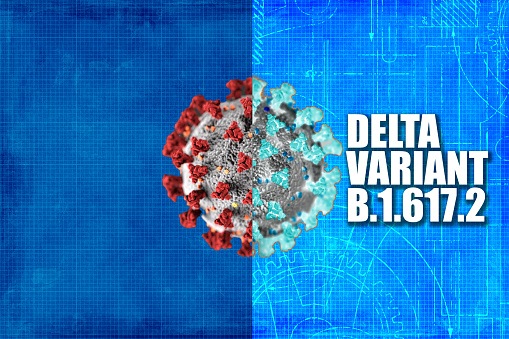RIO DE JANEIRO, BRAZIL – Argentine authorities called on Tuesday to be extremely careful due to the presence in the country of the Delta variant of SARS-CoV-2, which has been identified so far in 15 people who arrived from abroad but is not yet circulating in the community.

“It requires from all of us a lot of focus to be able to comply with the protocols and regulations in force. And if we do that, we will surely delay as much as possible the community circulation, that is to say, the risk that someone, by being in the city, could be infected by this variant”, the Minister of Health of the city of Buenos Aires, Fernán Quirós, told the press.
According to the national Ministry of Health, a total of 15 cases of the Delta variant have been identified to date, nine of which were reported in the last week in travelers coming from the United States, Mexico, and Paraguay.
Of these 15 people, five tested positive at the Buenos Aires international airport, the main entry point to the country, and were asymptomatic on entry.
However, two of them developed symptoms in the following days, during their isolation in hotels.
The remaining ten were negative on entry and tested positive during mandatory isolation at home after the trip: eight developed symptoms and two remained asymptomatic.
The ministry noted that four of the travelers had been vaccinated on their trip abroad.
QUARANTINE COMPLIANCE
For Quiros, “it is evident” that the Delta variant is arriving in Argentina in people returning to the country, so he stressed the need for everyone who enters the country to comply with the quarantine measures established by the Government.
The head of the Cabinet of Ministers of Buenos Aires, Carlos Bianco, expressed the same opinion.
“In the world, there are circulating lineages, variants, strains, much more contagious and dangerous as the Delta variant. What we are doing with these precautionary measures is precisely to prevent it from reaching our province or to moderate its arrival, and we hope that the spread will never happen as a variant of community circulation,” he said at a press conference.
QUOTA TO THE ENTRY OF TRAVELERS
Argentina, which has accumulated 4,662,937 coronavirus positives since the beginning of the pandemic and 99,255 deaths, keeps its land borders closed and prohibits the entry of foreigners not residing in the country. At the same time, it advances in the vaccination process.
However, two weeks ago it also tightened the restrictions for the entry of Argentineans, when it limited to 600 the maximum number of people who can enter the country daily, which generated a strong uneasiness in the airlines, which had to reschedule flights, and in the people who were waiting to return home.
This weekend, the government announced a slight increase in this quota: a total of 5,200 people will be able to enter by air during the week of July 10 to 16; this figure rises to 6,300 between July 17 and 23 of the same month and 7,000 during the week of July 24 to 30 and July 31 to August 6.
Those arriving in Argentina must carry a negative molecular biology test carried out a maximum of 72 hours before the trip and take an antigen test upon entering the country, both at authorized airports and the port of Buenos Aires. If they test positive upon arrival, they must be isolated in specific hotels in Buenos Aires.
And the rest of the travelers must remain in isolation for seven days after entry, at which time they must take another covid-19 test.
“We have identified to date several people who on arrival in Argentina had no symptoms of the disease and had a negative PCR and local test, and despite this, in the following seven days either developed symptoms or we identified in the swabbing on the seventh day that they were positive. A proportion of those who tested positive had the Delta variant,” Quiros said.

